If You Really Loved Me Read online
Page 26
She identified each picture, all correctly. The green house was caught in her memory, as much as she had tried to forget it.
"Why don't you just start anywhere," Newell suggested. "Tell us what you remember about the incident—leading up to it, that day, and from then on."
Cinnamon took a deep breath. "Well ... I was in the living room one day with my father and Patricia. Patti had left to go to the kitchen—we had a dining room before you would reach the kitchen—and she stopped there by the door. . . . She goes, 'Shhh!' so I was quiet."
Patti had stood frozen for minutes. When she came back to the living room, she looked perplexed. "I just heard the strangest thing," she said. She told Cinnamon and David that she had overheard a phone conversation between Linda and her twin brother, Alan. She said it sounded as if they were planning to kill David.
Cinnamon had laughed, but Patti was adamant. "She goes, 'No, I'm serious. . . . Linda was talking to Alan about killing David!' My dad goes, 'What have you been smoking in the kitchen?' but she goes, 'I'm serious.'"
Cinnamon said David sighed and asked Patti what she had heard, but she had seemed very upset and said she couldn't discuss it in the house because Linda might overhear. "And I was saying, 'She's pulling your leg—she wants attention,' and after a while Linda came out and everything was okay. She told me to go get ready for dinner."
"Do you have a time frame?" Newell asked. "How long was this before Linda was killed?"
". . . At least seven months before."
The subject was dropped for the evening, but David had brought it up again the next day when he, Patti, and Cinnamon were going to the chiropractor. (They all had been in an earlier accident.)
"Patti said that Linda was going to kill my father to get him out of the way." Cinnamon said she could not believe it. She had looked at Linda later and thought, "Linda wouldn't say something like that. I was thinking, like, because she was so pretty. . . . No, Patti's hallucinating."
Cinnamon had tried to write it off as a practical joke. "Our family's a big bunch of practical jokers."
But the terror had begun. David said he knew Linda was going to try to kill him. "My father kept saying, 'Just believe me. I'm your father. I know she is trying to kill me.' "
From that point on, David had been in "almost a paranoid state," and he had come to Cinnamon often and said, "Linda's going to try to kill me."
Cinnamon didn't know how to respond. She was afraid to discuss her father's fears with her mother because she didn't want it to get back to David. She was frightened of David. He could get so angry.
It was during this period that Cinnamon had seen her father kissing Patti in the store. That made her even more confused. Linda was being so nice to her, so worried about Cinnamon's sadness. But Cinnamon certainly couldn't tell Linda about her father and Patti kissing.
She couldn't tell anyone.
"The next thing I remember happening that concerns the case is me being out in the van with my father and Patti. My father just got back from Randomex, and we were going to cash his check. ... I heard Patti talking to my father about 'we have to get rid of her. '... My father was all—'I don't know how we're going to do it.' I sort of oozed into the next seat behind them, and my father looked back at me and he goes, 'What did you hear?' . . . and he said, 'You probably heard it already, so just sit there.' "
Newell darted a glance at McLean. The story was bizarre, but it had the ring of truth to it. Neither man had to say more than a word or two to keep it flowing. Cinnamon had held it in so long.
Patti reminded Cinnamon of the phone call she had overheard. "Well," Patti said, "I heard them again . . . and they said they were going to kill your father . . . this time, they're serious."
Cinnamon was hard to convince. She argued that Patti couldn't have heard what was on the other end of the line—not with the speakerphones turned off—but Patti said, "I just know, and we have to get rid of her before she kills your father. . . . You don't know Linda. I know Linda. She's my sister."
And then David himself kept telling his fourteen-year-old daughter that he believed Linda was plotting to kill him. "Either we could get rid of Linda—or I could leave."
Cinnamon was appalled. "Why would you leave us? What are you talking about? Why don't you just get a divorce?"
Cinnamon had had precious little stability in her young life, and her father seemed to her then very strong, very loving, the one constant she could cling to. He had groomed her to be that way. The thought that he might leave her seemed more real, more threatening, than Patti's story of murder plots. He had already been divorced four times, she argued. One more wouldn't matter.
"No," David said. "She'll still kill me if I divorce her. . . . I'll just leave you guys with everything and take off and start over again."
"I said, 'I don't want you to leave me, Daddy. I don't want you to leave me . . . and he goes, 'I have to. Either that or we have to get rid of Linda.' "
"So I said, 'How can I help? Can I talk to her for you?' But he said, 'No, don't ever talk to her about what we talked to you about.'
"I said okay. And that's when I started listening to my father, and he started telling me things. And I was thinking that it was right—because I believed in my father."
The grotesque conversation continued as the van hurtled toward Garden Grove. David suggested that maybe they could just send Linda away, perhaps give her a lot of money and send her away.
"Patti said, 'No—that won't work. . . . We'd have to get rid of her. . . . We'd have to kill her,'" Cinnamon told Newell and McLean. "At that time, to me, that didn't seem like reality. It just seemed like Patti was talking. I said, 'How do you plan on killing her?' She goes, 'I've been thinking about that—maybe hitting her over the head.' And I go, 'With what?' She goes, 'With something hard,' and I said, 'Would that kill her?' She goes, 'I think so,' and my father butted in. He goes, 'Well, if she hits her hard enough in the right place, it would kill her.' "
Cinnamon still couldn't believe that they were talking about Linda, that Linda could possibly be a threat to anyone. It all seemed like a long-running sick joke. Her father was like that sometimes, thinking up weird practical jokes. She stared out the window.
"Patti goes, 'Do you have any suggestions?' "
"To kill somebody?" Cinnamon had asked, still thinking it was a game more than anything. "In the movies, I saw—in the bathtub, you throw an electrical appliance in there, but I'm not sure how good that works."
Patti had laughed and said, "No, no, no. We'd have a hard time getting Linda in the tub . . . she's always showering. "
Cinnamon relaxed. It was a joke, after all. She moved back in the van and turned on her radio, ignoring her father and Patti. .
Newell asked her if they had talked about the subject of killing Linda in the house. Cinnamon said no; they were afraid of being overheard. She wasn't even sure how long it was before David brought it up again. She remembered they were in the car, going to the chiropractor.
"Who was there then?" Newell asked.
"It was me, Patti, and my father.
"My father said, 'Cinny, it has to happen immediately.' He just popped out of the blue with 'it has to happen immediately.' [He said,] 'We have to get rid of Linda as soon as possible. I just know she's going to kill me soon. We can't delay it anymore. It has to happen, like, right away.'
"Patti said, 'Yeah, it has to happen.'
"I was all, 'Well, how do you guys plan on doing it?' and he goes, 'We need your help.' "
Cinnamon closed her eyes, reliving the drive with Patti and David, repeating what he had said to her.
"He goes, 'Do you love me, Cinnamon?'
" 'I love you. Don't be stupid!' I said, and I hit him on the back of the head.
" 'Do you love me?' and I said, 'Of course I love you.'
" 'How much do you love me?'
"I said, 'I love you a lot. I love you more than anything.'
"And he goes, 'Would you do anything for me?'<
br />
"I said, 'Yeah, I'd do anything for you. I love you.'
" 'I want to make sure that you love me enough that you'll do anything for me.'
" 'Of course. Don't be ridiculous.' "
"I'm being serious with you," David had said.
"And I said, 'I'm being serious with you too.' Then I started getting emotional. I was figuring, oh, no, he's going to leave me. I know he's going to leave me! He goes, 'Ummm, I'm thinking about leaving.'
"'No, please don't leave,' and immediately, he goes, 'Well, then, how are you going to help me?' "
For an instant, Cinnamon remembered, she had felt as though she had just stepped through a door that had slammed shut behind her. And then she reassured herself that her father had always known what he was doing—that he was always in charge.
They rode along in silence for a long time, and she began to relax. It was the same sick joke again, some kind of test of her loyalty. Suddenly, her father spoke again. "I need you to help me. I need you to help me get rid of her."
"Do you want me to kill her?" Cinnamon had half-whispered.
"I want you to help, yes. And if you feel you have the stomach for it, I want you to do it."
It was still like moving underwater to Cinnamon. An alien environment. Her own voice echoed in her ears, and she heard her voice shake. "I like horror movies, but I don't have the stomach for that. You know me."
"I didn't think you would," David said. "I don't either."
Cinnamon said she had looked at Patti and said, "Does she?"
David explained that he and Patti had been discussing it.
"I don't even know what you guys are talking about," Cinnamon had cried. "I don't know what's going through you guys' heads!"
David's voice was very deep, very calm, and very determined. Cinnamon could see his eyes looking back at her from the rearview mirror.
"If you love me, you'll trust me. Just believe what I say. I'm your father. I know what's best."
26
Fred McLean and Jay Newell listened with a kind of horrified fascination. They scarcely felt the heat that had crept into the room where they sat. If what Cinnamon Brown was saying was true, she was describing the most sadistic manipulation they had ever heard. A fourteen-year-old girl drawn into her own father's murderous plot.
To prove her love for him.
Without prompting from Newell, Cinnamon described the next time the subject had arisen. The entire family— including Arthur and Manuela Brown—had gone to Riverside to visit a relative who had just had a baby. Linda, Manuela, Patti, and David went into the hospital and left Cinnamon alone with Krystal and her grandfather. "The baby and I were too young and had to stay in the lobby, so Grandpa stayed with us," Cinnamon remembered, closing her eyes as if she could see that day.
Arthur had questioned Cinnamon about some plot between Alan and Linda to hurt David, asking her, "What do you know about it?"
"I said, 'I don't know. That's for my father to tell you.' "
When Patti and David came back to the hospital lobby, leaving Manuela and Linda to ooh and aah over the new baby, Grandpa Brown had brought the subject up again. "My dad said, 'Remember, Father, I told you briefly what was going on with Linda? Her threat she made over the phone?' "
Arthur wanted to know more, and Patti had piped up, "Well, we're thinking about taking care of it tonight."
David nodded. "Yeah, we're going to take care of it tonight on the freeway. . . . Don't mention it to Mother, because Mother has a big mouth," David said, referring to Manuela.
Cinnamon had listened with horror—was it more of "the game" or were they serious?
"We're going to be driving down the freeway," Patti was saying to Grandpa Brown. "David is going to go fast. Not real real fast to exceed the limit, but he's going to go pretty fast. And when Linda gets in the car, we're not going to shut the door all the way. We're going to take out the light there—so you can't see in the van when the door opens."
Just then, Linda and Manuela had walked into the hospital lobby. Linda was smiling, and they started for home. Manuela seemed oblivious of the undercurrent of tension; she fussed over Krystal, adjusting the baby's car seat.
Cinnamon shuddered. "We were on the freeway and I was waiting for Patti to open the door and push her out like she said she was. And I didn't see anything, and I thought, 'Good. Good. ... I love Linda and I'm not ready to deal with this. I need to spend more time with her.' "
But Patti had moved between the van seats—back to where Cinnamon sat. "You go do it," she said to Cinnamon.
"Are you crazy?"
"You go do it," she whispered.
"No."
"Why not?"
"For one thing, I'm not strong enough," Cinnamon stalled. "No, I'm not going to do it." She said she saw her father look back at her in the mirror, his eyes trapping hers. "He looked at me, and I shook my head no."
"Was your grandfather doing anything?" Newell asked.
". . . I'm not sure, but he heard them talking about pushing Linda out of the van."
"He did?"
"Yeah, and he was telling my father, 'I don't think that's a good idea, David. You better not do it.' "
They had driven west along 91, stopping at a fast-food restaurant. According to Cinnamon, when she and Patti returned to the van, Patti moved back to where she was sitting and insisted that she carry out the plan. "You need to do it."
Cinnamon balked. "You don't know what I need to do."
"If you love your father, you'll do it."
"I love my father, but I'm not ready to do something like that!"
"You don't love your father—otherwise you wouldn't have any hesitation. You'd go do it."
The constant repetition of what she should do for love was beginning to get to Cinnamon. She began to feel guilty. Fortunately, her grandfather came out of the restaurant and sat by her.
"Your father's wrong," he whispered. "Whatever you do, it's wrong. He's a sick man. I'm telling you now he's a sick man."
Nothing bad happened. Despite all the intrigue and dark plotting on the freeway, they had arrived home in Garden Grove from what turned out to be an uneventful trip. Linda had no inkling how close she had been to instant, shattering death on the freeway. She carried her baby in and put Krystal down for a nap, completely oblivious to danger.
She had, perhaps, a month to live.
Cinnamon told Newell and McLean that the topic of killing Linda before Linda and Alan killed David was never really dropped again. Every time they were in the van or the car going someplace, either David or Patti would bring it up. And each time, there was more urgency in their voices. David told Cinnamon a hundred times or more that he would have to go away from her—in order to survive. If not that, Linda would have to die.
If this was true, McLean and Newell realized that Cinnamon must gradually have become inured to the inhumanity of the plot. What had seemed incomprehensible would have become almost commonplace—when it was drilled into her mind continually, and when the manipulator was the man she trusted most in the world, it would have happened more quickly.
Had she been brainwashed? If she had, it was obvious that Cinnamon herself was not aware of it.
"The next time you discussed this—" Newell began, the question scarcely out of his mouth before Cinnamon responded. She had been gagged for so long that her words and thoughts burst forth in freshets of sound.
". . . The next incident I remember is we were planning a trip. Most of it took place in the van. My father had said we were going up shooting and also that there was some money he had hidden up there a long time ago."
"Up where?" Newell asked.
"Somewhere up in the mountains up in Riverside. ... I think he was planning to take us on a long trip ... so he said we needed to load up the first-aid kit, and the guns, some food, soda, the ice chest. The van had a refrigerator so I filled it with food and stuff. . . . Linda wasn't too thrilled about this trip. She said, 'I don't want to take the baby u
p there,' and my father was saying, 'We'll drop you off at your mother's house so you can visit your relatives.' "
Cinnamon recalled working most of the day before the planned trip, mowing the front and back yard, helping clean the house, loading all the heavy gear into the van. David asked her to load a very heavy box from under his bed. He also said, "Take the guns out there."
"There was a lot of guns," Cinnamon said. "There was some rifle guns, some smaller guns ... I can't remember if we took the bow and arrows."
"A crossbow?" McLean asked; he had not seen any bows or arrows when he worked the crime scene—nor had Morrissey listed any. "The kind with cams on it?"
"I would think it had arrows," Cinnamon said.
"Yeah, but I mean cams for reducing the draw pull on your shoulder—but it increases the force of the bow. It's got wheels on both ends," McLean explained.
Cinnamon shook her head, baffled. She couldn't remember if she had loaded a crossbow into the van—her father had so many weapons—but she did remember David had reminded her to be sure the BB guns were in for herself and Patti.
They headed for the mountains, but David never stopped for BBs. Nor did he stop to leave Linda at her mother's house. When Cinnamon asked why they hadn't stopped, her father had told her to sit down and be quiet.
The tape clicked to a stop. Newell held up his hand to silence Cinnamon for a moment. He looked at his watch. It read 12:21.
A new tape started rolling, and Cinnamon began again. "At this time, we were way up there in the mountains somewhere. I reminded my father about the BBs again. He goes, 'You're on my last nerve. Go sit your butt down.' . . . My grandpa said . . . 'Don't worry about it. Just sit down.' "
"So your grandpa and grandma went too? Everybody went?"
"I can't remember if Grandma went. Grandma sort of blended into the carpet when she was in the van, and I can't remember if she was there or not."
Newell and McLean exchanged an amused glance. Despite the grim subject at hand, Cinnamon had a flair with words. Her recounting of the perambulations of the van packed full of Browns sounded like a day trip with The Family From Hell.

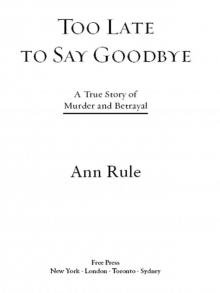 Too Late to Say Goodbye: A True Story of Murder and Betrayal
Too Late to Say Goodbye: A True Story of Murder and Betrayal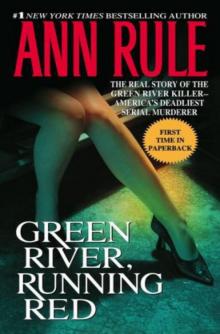 Green River, Running Red
Green River, Running Red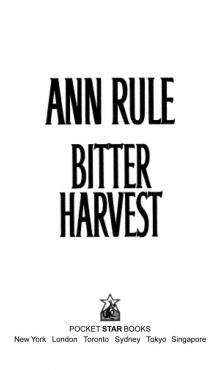 Bitter Harvest
Bitter Harvest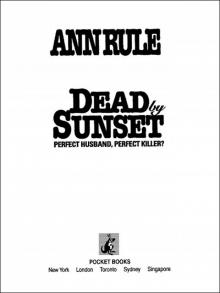 Dead by Sunset: Perfect Husband, Perfect Killer?
Dead by Sunset: Perfect Husband, Perfect Killer?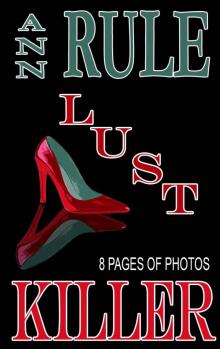 Lust Killer
Lust Killer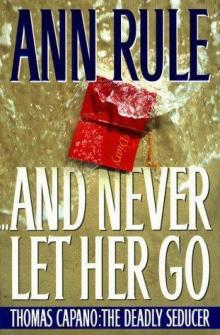 And Never Let Her Go: Thomas Capano: The Deadly Seducer
And Never Let Her Go: Thomas Capano: The Deadly Seducer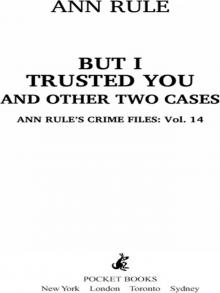 But I Trusted You and Other True Cases
But I Trusted You and Other True Cases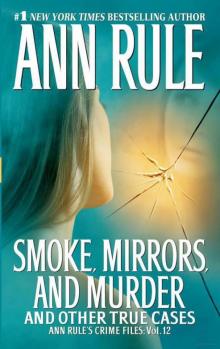 Smoke, Mirrors, and Murder and Other True Cases
Smoke, Mirrors, and Murder and Other True Cases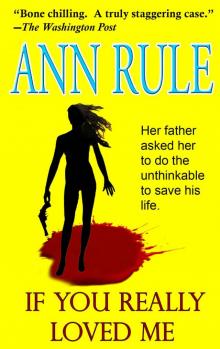 If You Really Loved Me
If You Really Loved Me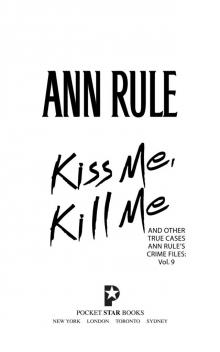 Kiss Me, Kill Me and Other True Cases
Kiss Me, Kill Me and Other True Cases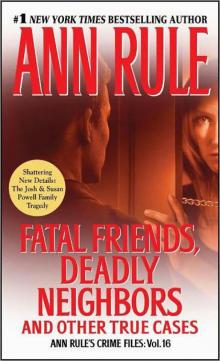 Fatal Friends, Deadly Neighbors and Other True Cases
Fatal Friends, Deadly Neighbors and Other True Cases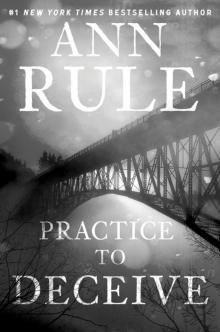 Practice to Deceive
Practice to Deceive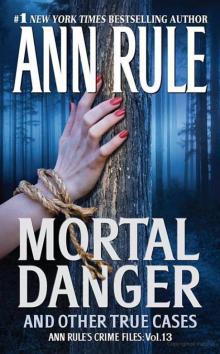 Mortal Danger and Other True Cases
Mortal Danger and Other True Cases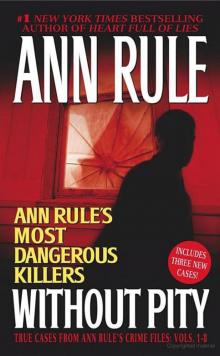 Without Pity: Ann Rule's Most Dangerous Killers
Without Pity: Ann Rule's Most Dangerous Killers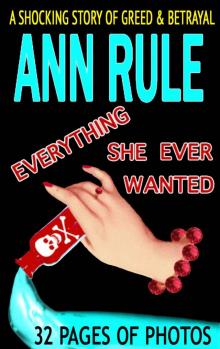 Everything She Ever Wanted
Everything She Ever Wanted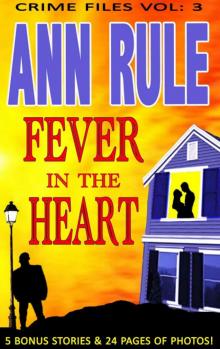 A Fever in the Heart and Other True Cases
A Fever in the Heart and Other True Cases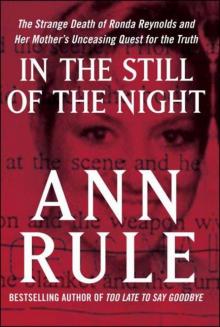 In the Still of the Night
In the Still of the Night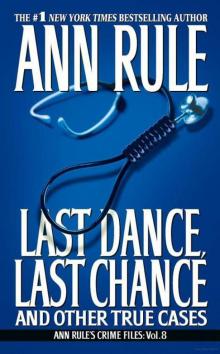 LAST DANCE, LAST CHANCE - and Other True Cases
LAST DANCE, LAST CHANCE - and Other True Cases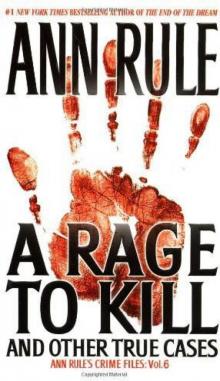 A Rage to Kill
A Rage to Kill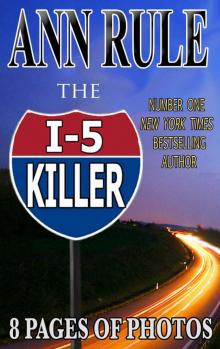 The I-5 Killer
The I-5 Killer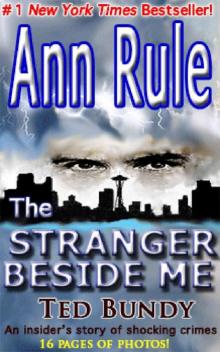 The Stranger Beside Me
The Stranger Beside Me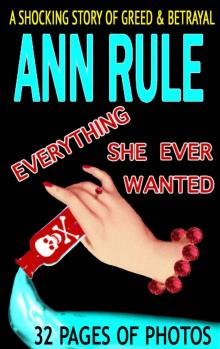 Everything She Ever Wanted: A True Story of Obsessive Love, Murder, and Betrayal
Everything She Ever Wanted: A True Story of Obsessive Love, Murder, and Betrayal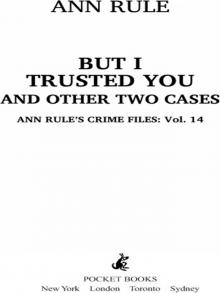 But I Trusted You
But I Trusted You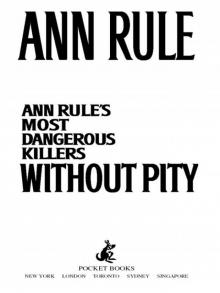 Without Pity
Without Pity Kiss Me, Kill Me
Kiss Me, Kill Me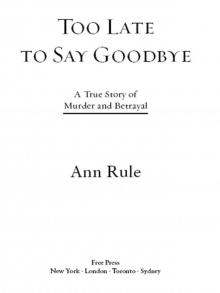 Too Late to Say Goodbye
Too Late to Say Goodbye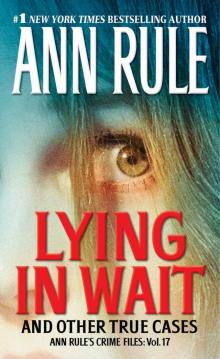 Lying in Wait
Lying in Wait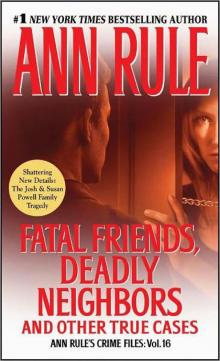 Fatal Friends, Deadly Neighbors
Fatal Friends, Deadly Neighbors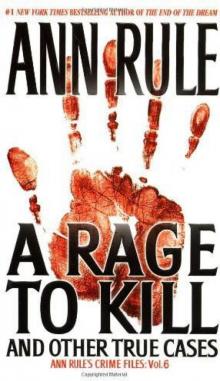 A Rage to Kill: And Other True Cases
A Rage to Kill: And Other True Cases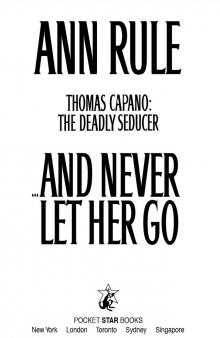 And Never Let Her Go
And Never Let Her Go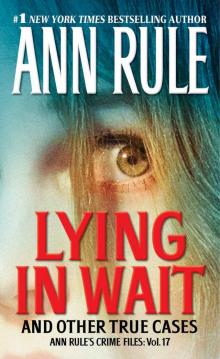 Lying in Wait Ann Rule's Crime Files Vol.17
Lying in Wait Ann Rule's Crime Files Vol.17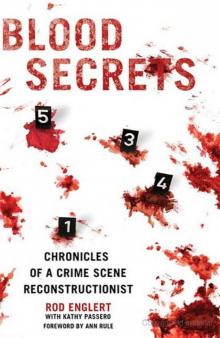 Blood Secrets: Chronicles of a Crime Scene Reconstructionist
Blood Secrets: Chronicles of a Crime Scene Reconstructionist No Regrets
No Regrets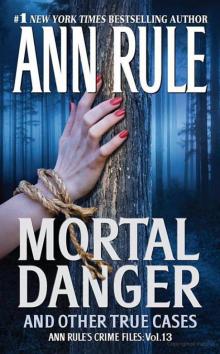 Mortal Danger
Mortal Danger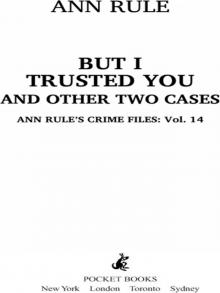 But I Trusted You: Ann Rule's Crime Files #14
But I Trusted You: Ann Rule's Crime Files #14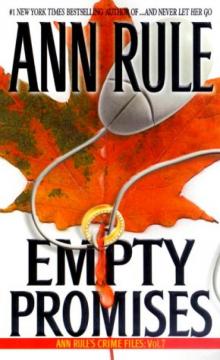 Empty Promises
Empty Promises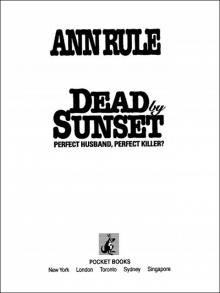 Dead by Sunset
Dead by Sunset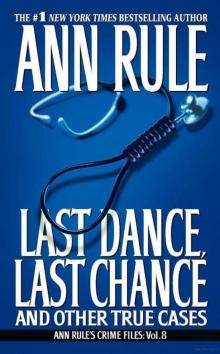 Last Dance, Last Chance
Last Dance, Last Chance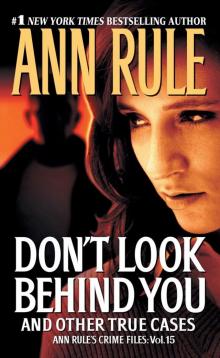 Don't Look Behind You
Don't Look Behind You